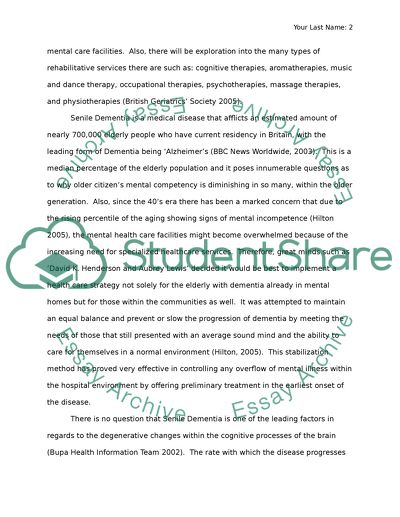Cite this document
(“There is no point in providing rehabilitation for elderly patients Essay”, n.d.)
There is no point in providing rehabilitation for elderly patients Essay. Retrieved from https://studentshare.org/health-sciences-medicine/1534612-there-is-no-point-in-providing-rehabilitation-for-elderly-patients-with-senile-dementia-the-resources-could-be-used-more-effectively-elsewhere-in-the-healthcare-system
There is no point in providing rehabilitation for elderly patients Essay. Retrieved from https://studentshare.org/health-sciences-medicine/1534612-there-is-no-point-in-providing-rehabilitation-for-elderly-patients-with-senile-dementia-the-resources-could-be-used-more-effectively-elsewhere-in-the-healthcare-system
(There Is No Point in Providing Rehabilitation for Elderly Patients Essay)
There Is No Point in Providing Rehabilitation for Elderly Patients Essay. https://studentshare.org/health-sciences-medicine/1534612-there-is-no-point-in-providing-rehabilitation-for-elderly-patients-with-senile-dementia-the-resources-could-be-used-more-effectively-elsewhere-in-the-healthcare-system.
There Is No Point in Providing Rehabilitation for Elderly Patients Essay. https://studentshare.org/health-sciences-medicine/1534612-there-is-no-point-in-providing-rehabilitation-for-elderly-patients-with-senile-dementia-the-resources-could-be-used-more-effectively-elsewhere-in-the-healthcare-system.
“There Is No Point in Providing Rehabilitation for Elderly Patients Essay”, n.d. https://studentshare.org/health-sciences-medicine/1534612-there-is-no-point-in-providing-rehabilitation-for-elderly-patients-with-senile-dementia-the-resources-could-be-used-more-effectively-elsewhere-in-the-healthcare-system.


